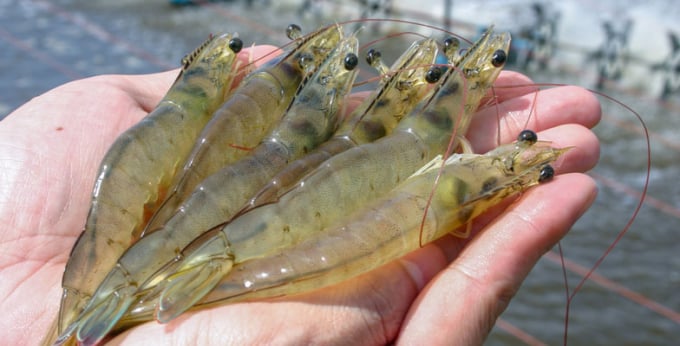June 19, 2025 | 07:00 GMT +7
June 19, 2025 | 07:00 GMT +7
Hotline: 0913.378.918
June 19, 2025 | 07:00 GMT +7
Hotline: 0913.378.918

The use of antibiotics in global aquaculture are increasing sharply. Photo: TL.
According to VASEP, a new study published in Nature (USA), warns that the use of antibiotics in aquaculture will increase by about 33% between 2017 and 2030 globally.
Specifically, it is estimated that the use of antibiotics in global aquaculture will increase from 10,259 tons in 2017 to 13,600 tons in 2030.
Currently, the Asia-Pacific region accounts for the majority of antibiotic consumption in aquaculture (accounting for 93.8%). In particular, the most use of antibiotics is in China, accounting for 57.9% of the total amount of antibiotics used in global aquaculture.
Also according to the above study, other major antibiotic consuming countries were India (11.3%), Indonesia (8.6%) and Vietnam (5%).
According to the study's authors, this growth in antibiotic use needs to be addressed urgently because overuse of antibiotics in livestock leads to antibiotic resistance.
Translated by Thu Hang

(VAN) To address plastic pollution, closing the plastic recycling cycle will bring significant economic and environmental benefits.

(VAN) According to the Binh Thuan Department of Industry and Trade, in the first five months of 2025, Binh Thuan's dragon fruit export turnover increased by 20.65% compared to the same period last year.

(VAN) EU countries on Thursday gave final approval to new tariffs on fertilizer imports from Russia, a move aimed at cutting off revenue that could support Moscow’s war in Ukraine, despite concerns from European farmers.

(VAN) The working delegation from the Ministry of Agriculture and Environment conducted an important trip to the Netherlands to strengthen strategic partnerships and sustainable development in the agricultural sector.

(VAN) The letter ‘A Plea from the Ocean’ not only evokes emotion but also awakens the human conscience to the responsibility of protecting life on Earth.

(VAN) The Department of Agriculture in South Africa has announced the country’s first mass vaccination of poultry to prevent local birds from contracting avian influenza.

(VAN) Establishment of the Mekong Delta Regional Agricultural Linkage Center, aiming for a closed value chain, deep processing, trading platforms, and international market connectivity.